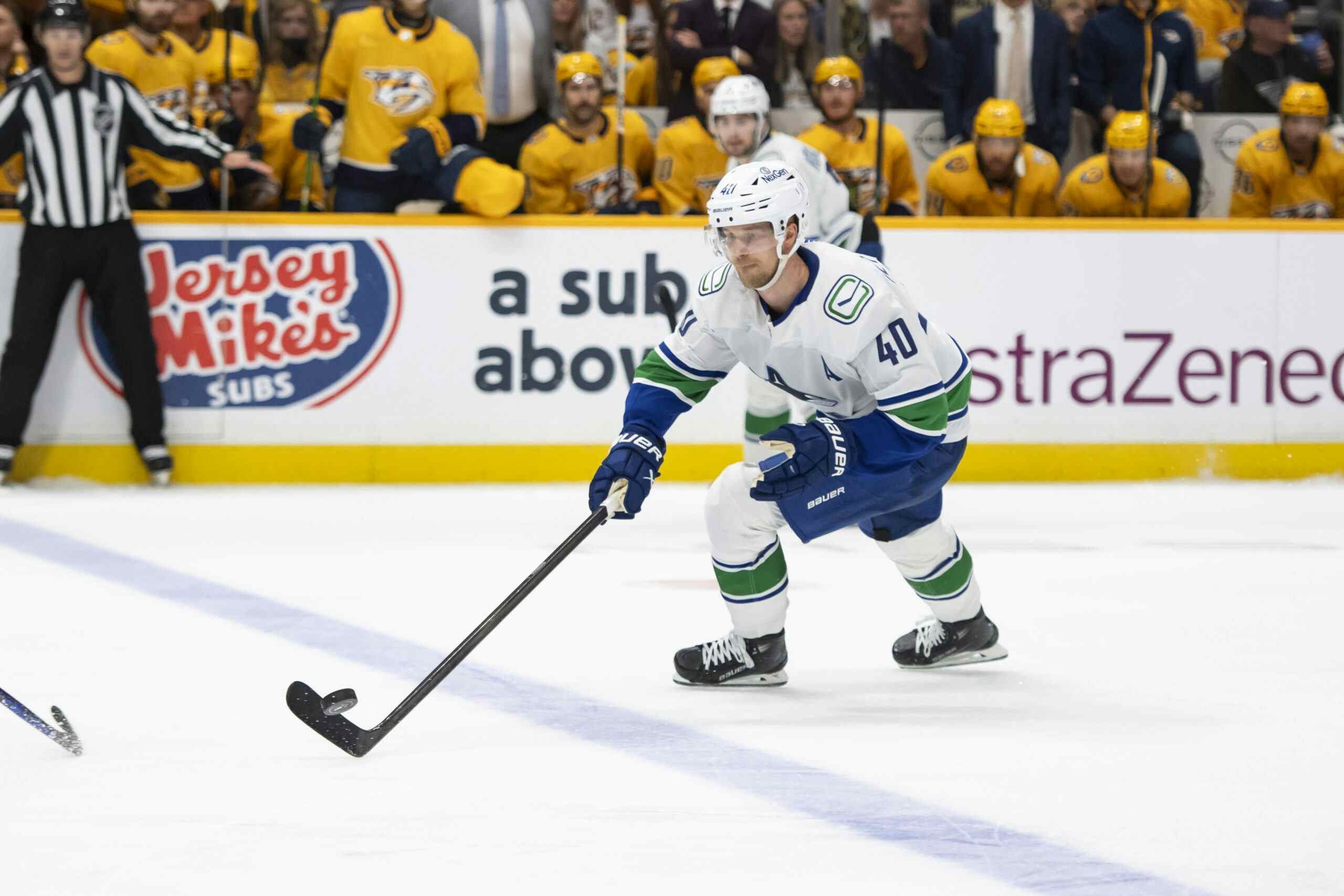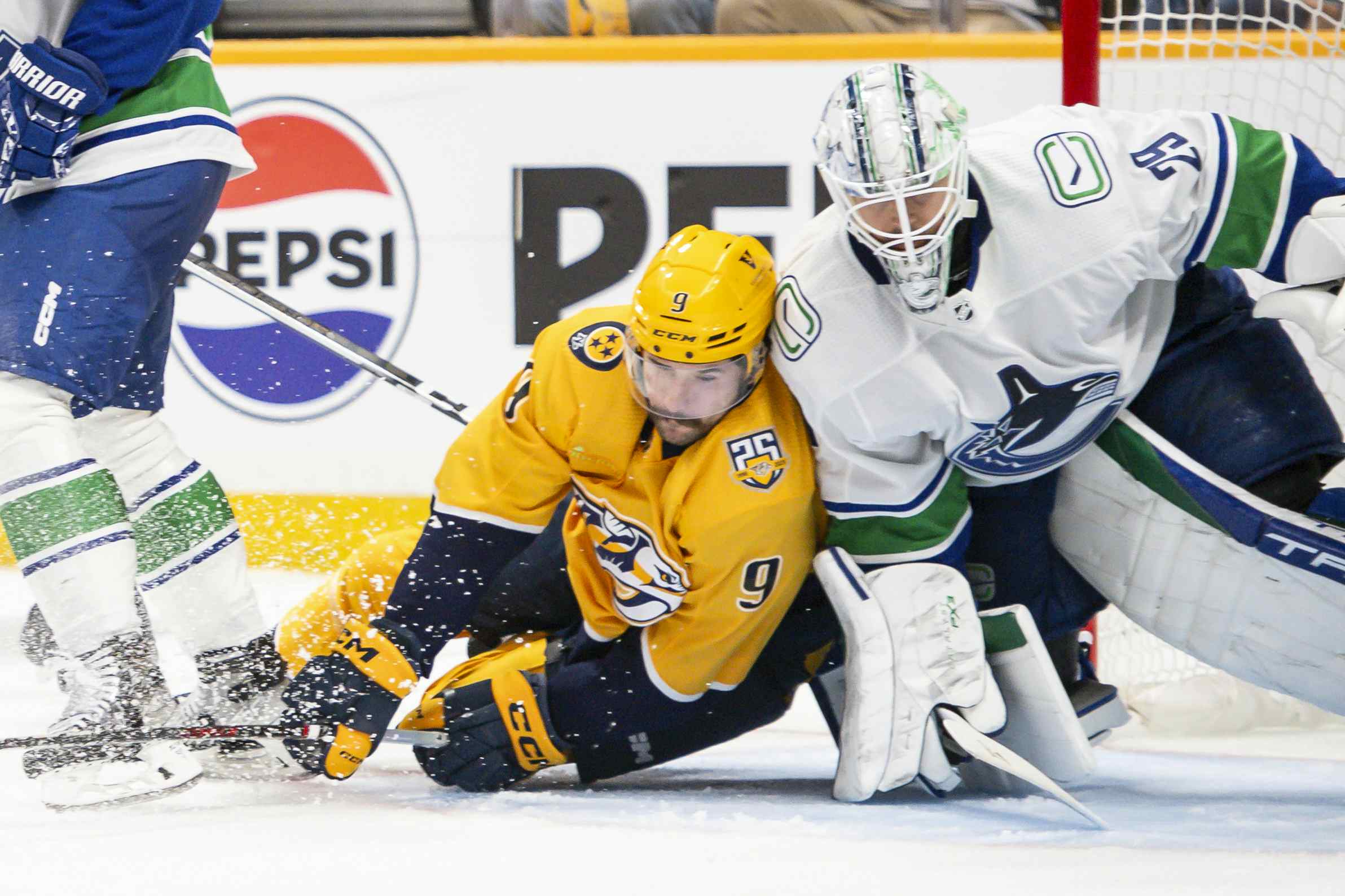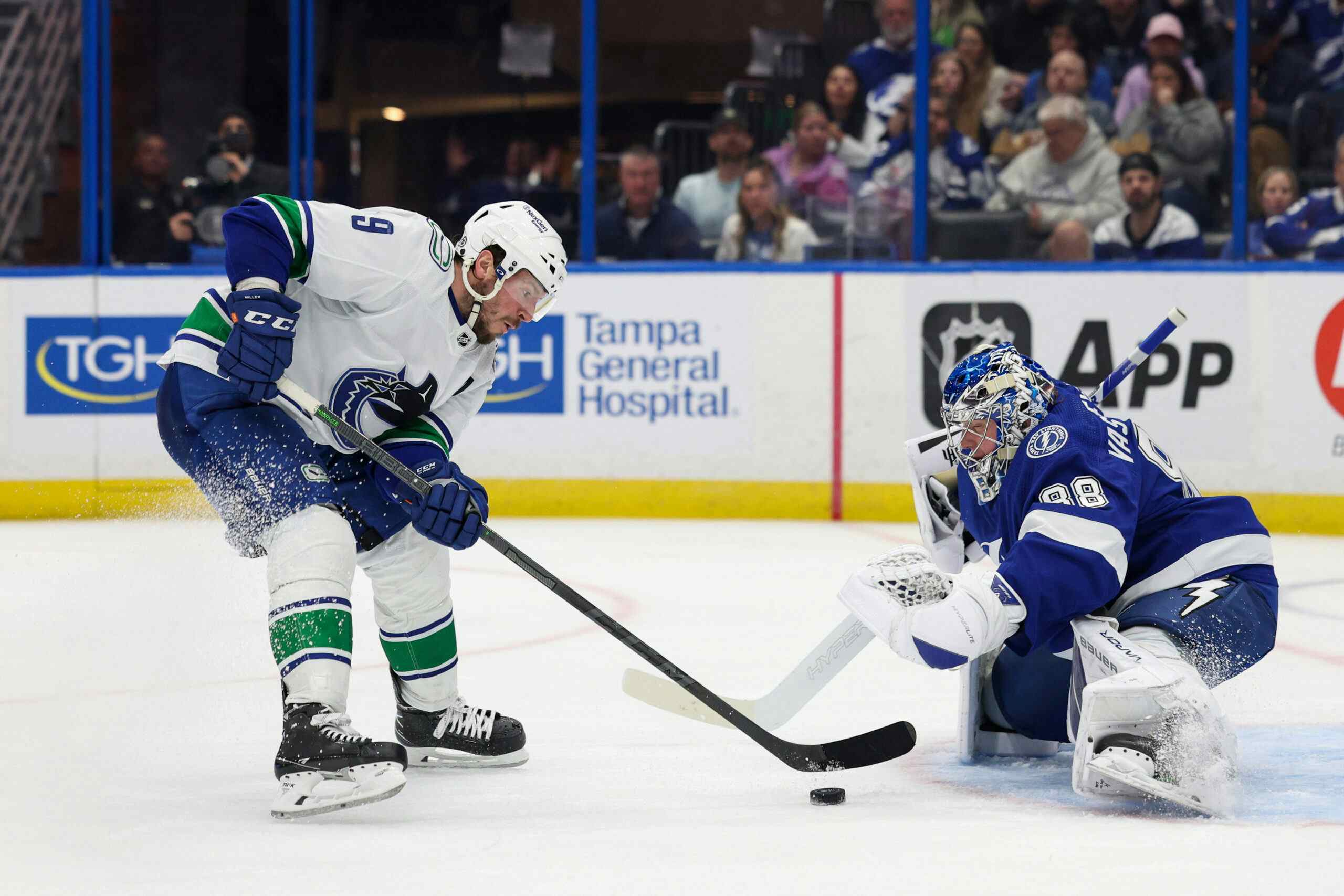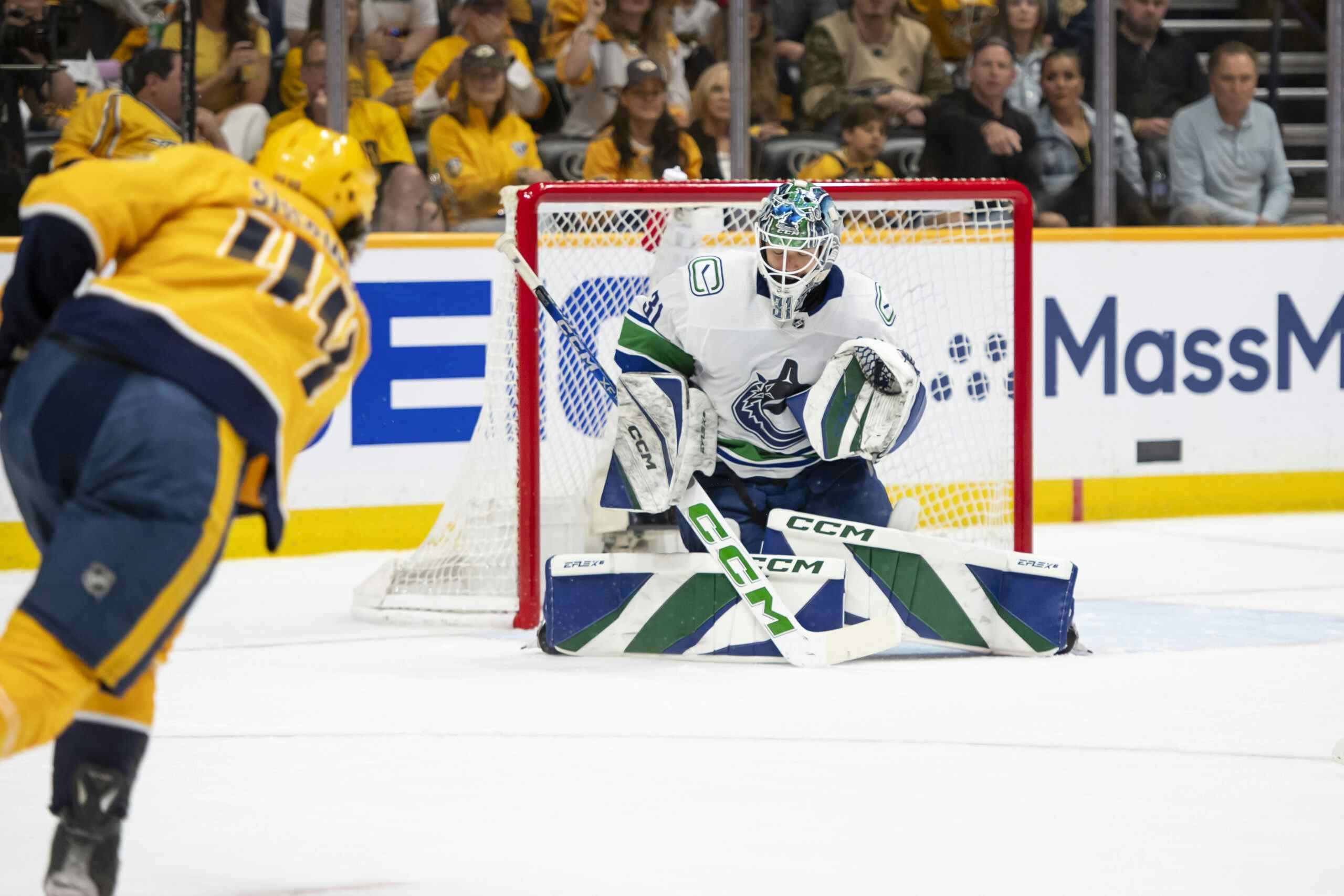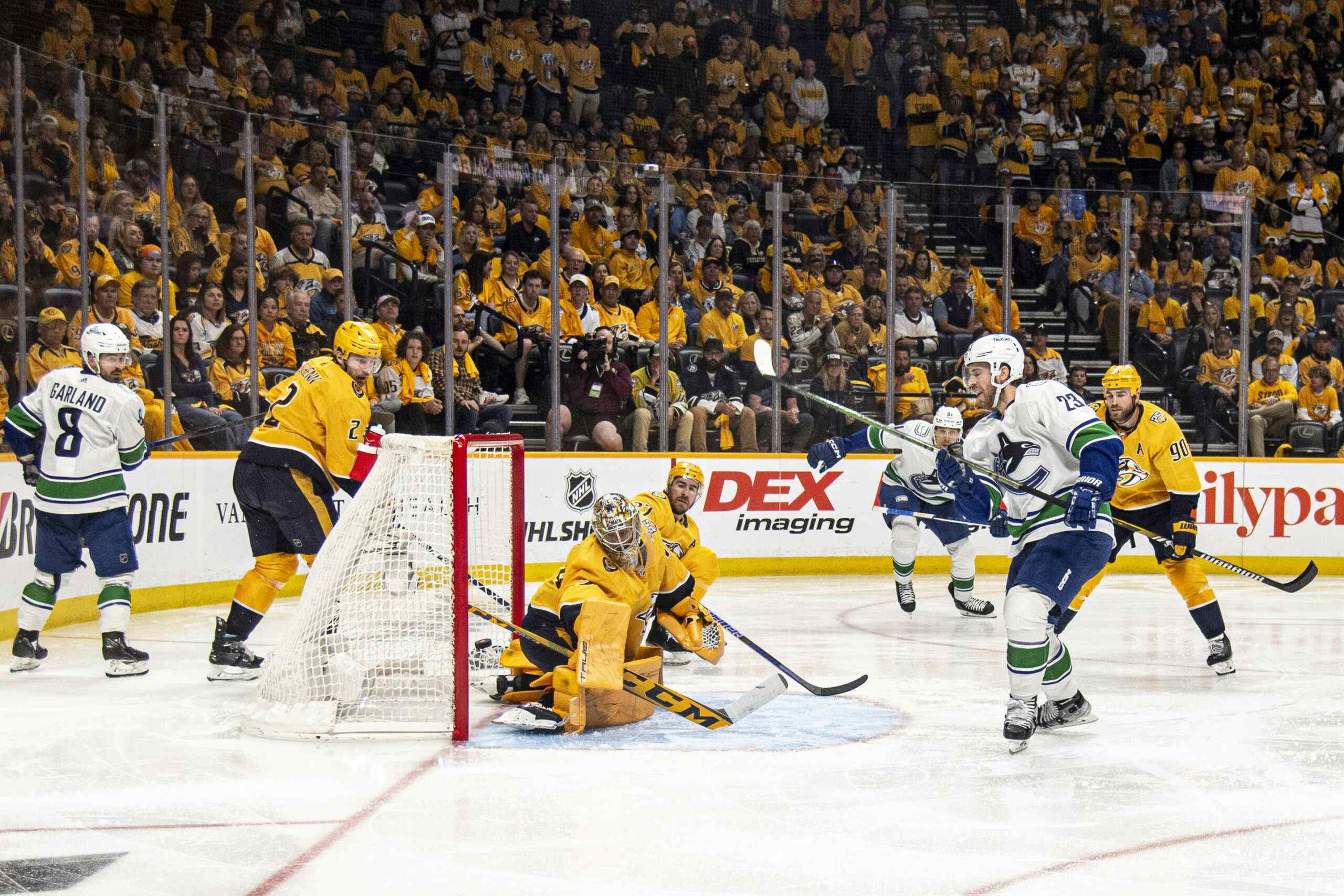The Jim Benning Five-Year Rewind: Free Agency Freshman Part 2
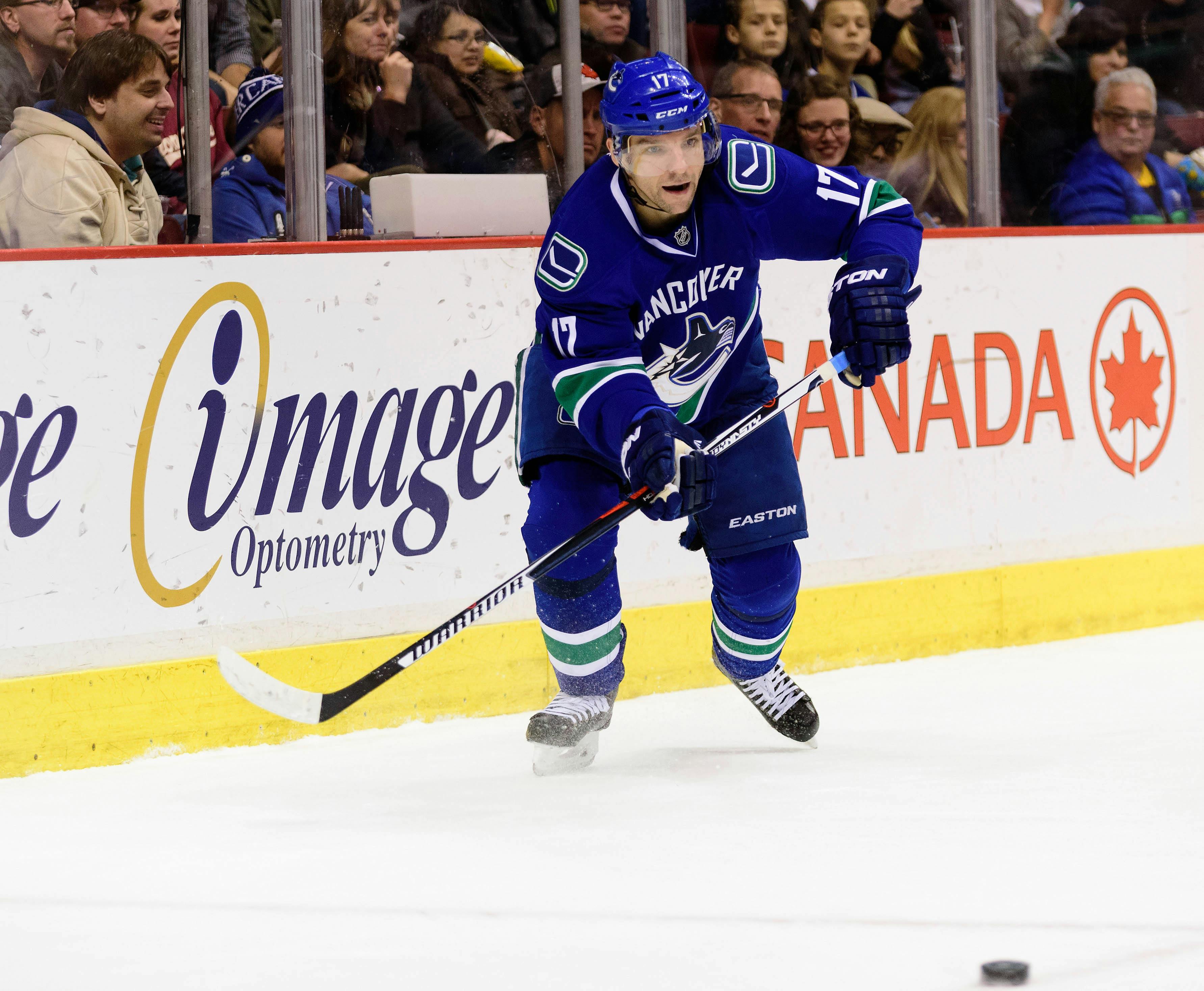
To recap, we’ve already spent time on The Jim Benning Five-Year Rewind rehashing—with the benefit of a half-decade’s hindsight—the first major moves of Benning’s tenure as GM of the Vancouver Canucks. In Issue #1 we tackled the Ryan Kesler deal, and after that we took on a trio of draft pick-related trades that included the acquisition of Derek Dorsett.
Our look at Benning’s first Free Agent Frenzy as an NHL General Manager ballooned beyond expectations and had to be split into two parts. Part 1 was all about Ryan Miller, and now Part 2 is here to deliver on the man, the myth, the lethargic—Radim Vrbata.
By the second day of free agency—July 2, 2014—Vrbata was one of the best talents remaining on the board. Somehow, Benning managed to snag the 34-year-old right winger to a contract that was low on term and medium on salary.
The Contract
Radim Vrbata for Two Years at $5 Million Per/
$10 Million Total
Modified NTC
The Decision
There’s debate to be had over the decision to make one last run at contention with the Sedins—but once that choice was made, the decision to pursue Radim Vrbata was an easy one.
With Ryan Kesler traded and with Alex Burrows having taken a step back in an injury-plagued 2013/14, there was a need for a new Sedin linemate if the Canucks were going to continue to build their offense around the twins.
After going nearly point-per-game in the lockout-shortened 2012/13 season, Vrbata had a down year in 2013/14—but still managed to crack 20 goals and 51 points for the offensively-impotent Phoenix Coyotes. Vrbata tied for second in team scoring that year with Mikkel Boedker, each just two points behind Keith Yandle.
The fact that such a free agent wasn’t demanding a crippling term or a bank-busting salary made this a bit of a no-brainer for a Jim Benning who displayed uncharacteristic patience in waiting 48 hours for Vrbata to make a decision.
As a one-time 30 goal scorer with a slow-paced, cerebral game, Vrbata seemed like a natural fit as Henrik and Daniel’s right winger—and indeed that’s exactly what he was.
For a little while.
Vr-Batman: Year One

From NHL.com
Radim Vrbata came about as hot out of the gates as a new acquisition can in 2014/15. Finding instant chemistry with the twins, Vrbata notched five points in his first three games and 11 in his first month.
His scoring remained pretty much consistent—he only went without a point in three straight games thrice in the entire season—on the way to career highs in assists and points with 32 and 63 respectively. Vrbata’s 31 goals were four off the 35 he scored in 2011/12.
An instant fan favourite, Vrbata was one of the few players on the roster—aside from the twins themselves—with enough offensive creativity to have a signature move. Time and again, Vrbata fooled goaltenders by feinting a wraparound and dropping a pass across his body and back to one of the Sedins—who would then fire the puck into the yawning cage. Observe:
Failed to load video.
Vrbata spent more than 50% of his even-strength time alongside Henrik and Daniel, and all parties reaped benefits from the winning combination. Their top line helped propel the Canucks to a somewhat improbable playoff appearance—a first round loss in which Vrbata posted four points in six games, tying for the team lead.

Then things went off the rails.
Irradimable
Radim Vrbata came out cold for the 2015/16 season, going pointless in his first six games and losing his ironclad hold on the Sedins’ right wing. The Sedins would go on to spend much of the season with Jannik Hansen on their line—whereas Vrbata would go on to spend much of the season floundering in the team’s middle-six.

From NHL.com
Vrbata found himself saddled with a number of young linemates—a far cry from his days with the twins. Rather than helping to elevate the games of Bo Horvat, Sven Baertschi, and Jared McCann, however, Vrbata served as a boat anchor to whoever was placed on his line.

From Dobber’s Frozen Tools
He made several comments to the media that seemed to intimate that he signed in Vancouver under some expectation of playing with the Sedins, and felt slighted that he was no longer receiving the opportunity. His unhappiness was also apparent in his quality of play.
Though his offensive creativity shone through in occasional bursts of passion, Vrbata sloughed through the 2015/16 with little apparent energy. Brief injury trouble did little to help his mood.
Vrbata did manage to put up five multi-point games, but he also went six games without a point on three separate occasions. In the end, Vrbata finished with just 27 points in 63 games—lows not seen since his days with the Carolina Hurricanes in the early 2000s.
The Canucks gladly cut ties with Vrbata in the 2016 offseason as he predictably returned to Arizona for the third time in his career. There, he posted a solid rebound campaign in 2016/17 before finishing his career with the Florida Panthers the following year.
Ultimate Value
Radim Vrbata may have left a sour taste in the mouths of the Vancouver Canucks and their fanbase, but that doesn’t mean he didn’t also return fair value on his contract.
In his first season with the team, Vrbata earned every penny of his $5 million salary—which represented 7.25% of the cap when he signed the deal, according to CapFriendly.
The real brilliance in this contract—and an unfortunate but sharp contrast to Jim Benning’s free agency signings to come—is in its brevity. One fantastic season into the deal, it was already half over—and had pretty much paid off already. Even if the wheels fell off the following year—which they absolutely did—the Canucks still got one last playoff drive built on Sedin excellence out of this contract, and that’s worth $10 million any day.
With all that being said, there’s definitely room to complain about Benning’s inability to cash in on Vrbata at the 2016 Trade Deadline. With the Canucks a longshot to make the playoffs and Vrbata clearly mentally checked out, a deal should have been made—but Benning found it impossible to negotiate both Vrbata’s NTC and the deadline market.
It will never be known how much of that was a result of Vrbata being intentionally difficult—his wife was pregnant at the time of the deadline and there were reports he’d adjusted his no-trade list that was very unfavourable to the team—and how much of it was Benning’s Trade Deadline ineptitude, but it’s probably a safe bet to be a little from both Columns “A” and “B” in this scenario.
As a pending UFA coming off a 30-goal season, Vrbata should have been able to return some sort of futures-based package at the deadline—even in the midst of a tempestuous slump. Vrbata proved the next season that he did have the ability to rebound, so surely there must have been someone willing to pay up for his services.
Frustratingly, the Radim Vrbata signing remains one wherein Jim Benning definitely received fair value—but could have got even more if he played his cards right.
Speaking of Trade Deadlines, tune in next time to hear all about Jim Benning’s first dealings with Deadline Day.
Recent articles from Stephan Roget

